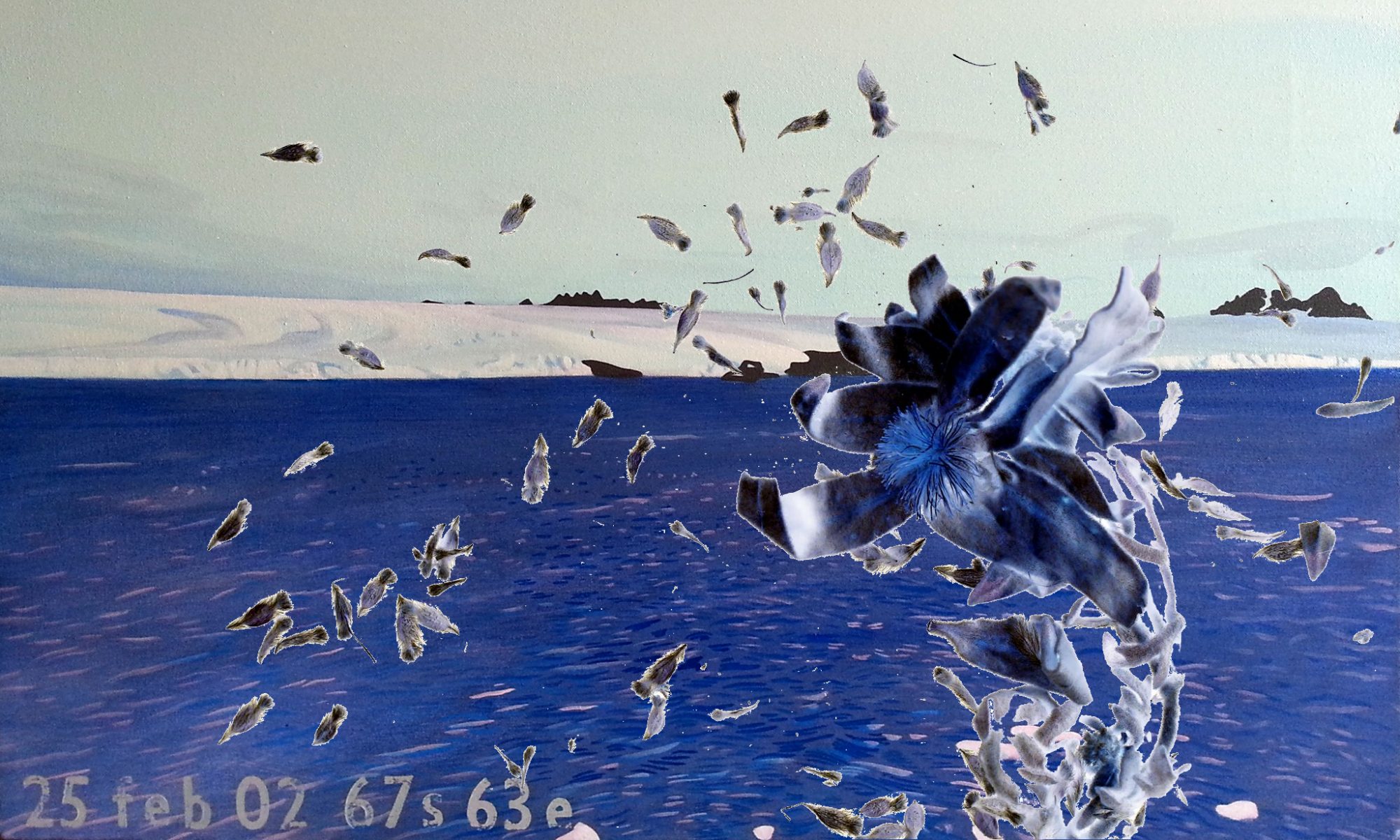Around 1991 I found a book in the remainder bin of a Melbourne bookshop: The Home Planet, a large book of pictures and words about Earth from space explorers from different countries. Although moving house several times since then, I have always brought along with me this large tome. After having been to Antarctica, this book is of greater significance. The book reveals that cosmonauts describe our home plant Earth in ways similar to Antarctic venturers. Both describe Earth from a greater distance than most people can, as a unique entity of which we are a part. They see Earth, and by extension our selves, with wonder and delight.
As cosmonaut Oleg Makarov writes in his Preface:
Cosmonauts don’t say much, especially when we’re on a mission. Usually some five to seven seconds are enough for us to express the most complicated thought. Or so I thought; but then a while ago I was asked to listen to recordings of the cosmonauts in space. To tell you the truth, I was amazed. Within seconds of attaining Earth orbit, every cosmonaut, without exception, be they a dry, reserved flight engineer or a more emotional pilot, uttered the same sort of confused expression of delight and wonder.
Curious, I analysed the initial conversations for a variety of missions and discovered an interesting pattern. It didn’t matter whether the cosmonaut was on a one-man mission in the first Vostocks or part of a large crew on a mission in a modern Soyuz, no one has been able to restrain his heartfelt wonder at the sight of the enthralling panorama of the Earth. The emotional outbursts lasted forty-two seconds on average.
(1988)
I am unaware of a similar record and analysis of antarctic expeditioners. However, going back through the notes, sound recordings and images collected through this research, I can list similar outpourings by Antarctic expeditioners I have known and been told about:
Jack Ward’s gesture before a Sydney Noland Painting, his mimicking of Antarctic wind with voice, a far away look in his steel blue eyes and the poetry of his journal.
Fred Elliot’s visceral drawings of lands known through body and soul, his lively gestures of the youth that he was there, when relating his Antarctic experience.
The majestic description of ice forming by Bill Burch, and his reference to Earth as a living being.
How Antarctica, for artist Stephen Eastaugh, is a place where different cultures meet, and where words and symbols are released from habitual meanings.
Lots more…
The notion of the earth as a living organism is expressed both by cosmonauts and Antarctic expeditioners:
Describing Antarctica, John Berchervaise and Jack Ward refer to a womanly place.
Weightlessness comes on abruptly. I soared as if I were inside a soap bubble. Like an infant in the womb of my spacecraft, still a child of my Mother Earth.
Cosmonaut Miroslav Hermaszewski, Poland
The depth of connection we have with Earth can be felt in Antarctica as it can be from space:
Emerging through the pragmatic words of scientist Dominic Hodgson, are strong feelings for land and wildlife, and for the natural cycles of Earth.
You have an almost dispassionate platform – remote, Olympian – and yet so moving that you can hardly believe how emotionally attached you are to those rough patterns shifting steadily below.
Thomas Stafford, USA
That personal fulfillment is finding our voice to express our connections with Earth, is strongly expressed by the US cosmonaut Charles Walker. Such voices, he suggests, must be artistic aesthetic responses we make to our individual experiences.
My first view – a panorama of brilliant deep blue ocean, shot with shades of green and grey and white – was of atolls and clouds. Close to the window I could see that this Pacific scene in motion was rimmed by the great curved limb of the Earth. It had a thin halo of blue held close, and beyond, black space. I held my breath, but something was missing – I felt strangely unfulfilled. Here was a tremendous visual spectacle, but viewed in silence. There was no grand musical accompaniment; no triumphant, inspired sonata or symphony. Each one of us must write the music of this sphere for ourselves.
Jacques-Yves Cousteau concludes in his Foreword:
From their exceptional journeys, they all come back with the revelation of beauty. Beauty of the black sky, beauty and variety of our planet, beauty of the Earth seen from the Moon, girdled by a scintillating best of equatorial thunderstorms. They all emphasize that our planet is one, that borderlines are artificial, that humankind is one single community on board spaceship Earth. They all insist that this fragile gem is at our mercy and that we must all endeavor to protect it.
I agree with Simon, my supervisor, that blogging has its own poetics.
Above is a sketch – notes I have made – for other more extended writing. You can see there a many blanks between words I have written here. I have started my thesis off-line, and that is extending slowly.
